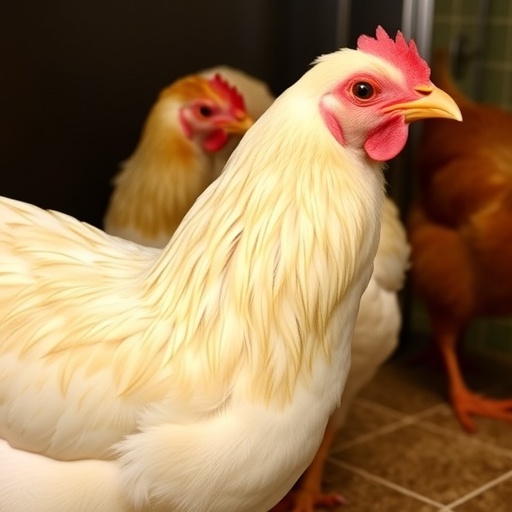In the ever-evolving landscape of poultry science, the quest for innovative strategies to enhance growth and overall health in broilers remains a primary focus. A recent study conducted by Elbaz, Ramadan, and Ateya sheds light on the remarkable potential of lysozyme—an enzyme known for its antibacterial properties—and the probiotic bacterium, Bacillus subtilis, in combating the challenges posed by heat stress in broiler chickens. This research contributes significantly to our understanding of nutritional interventions that can mitigate the adverse effects of high ambient temperatures on poultry.
Heat stress, a prevalent concern in poultry farming, can severely hinder growth performance and aggravate physiological stress among broiler chickens. Elevated temperatures lead to a series of metabolic disturbances, including decreased feed intake, impaired nutrient absorption, and compromised gut integrity. The physiological manifestations of heat stress result in increased susceptibility to diseases and lower overall productivity. Understanding the mechanisms that underlie these adverse effects is essential for developing effective therapeutic strategies.
Lysozyme, which is commonly found in egg whites and has been used in various veterinary applications, exhibits notable antibacterial effects that can help maintain gut health in poultry. The study underscores the enzyme’s capacity to enhance nutrient utilization and improve growth performance in heat-stressed broilers. By targeting harmful pathogens within the gut, lysozyme bolsters the immune response and ensures that the nutrients consumed by the chickens are effectively utilized for growth.
In conjunction with lysozyme, Bacillus subtilis emerges as a powerful ally in promoting gut health. This beneficial bacterium is well-documented for its probiotic properties, which include enhancing nutrient bioavailability and stabilizing gut microbiota. In the context




